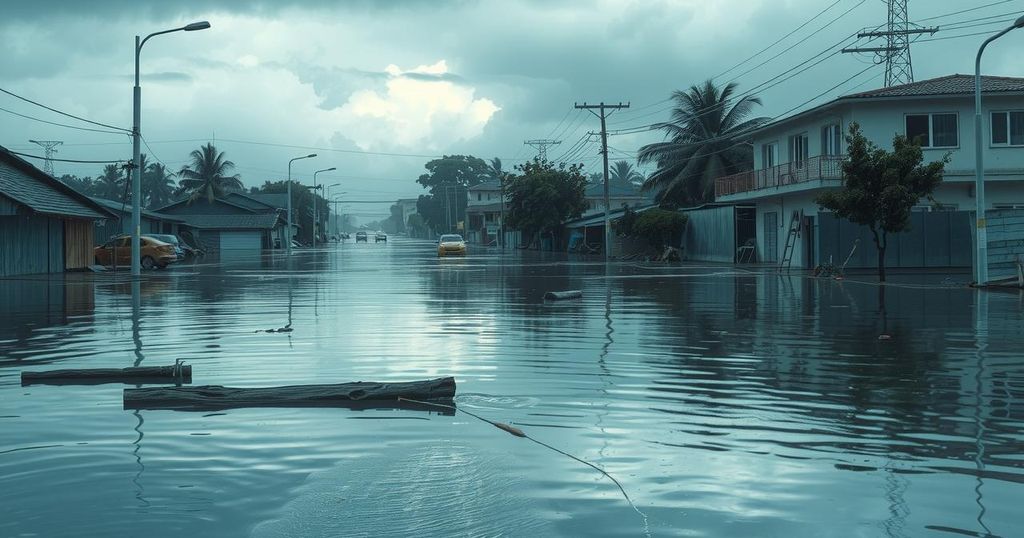Severe Flooding in DR Congo Capital Kinshasa Results in Over 70 Fatalities

Heavy rains in the DRC have led to widespread flooding, primarily affecting Kinshasa. 72 people have died, 170 injured, and over 5,000 displaced across 11 health zones. Emergency shelters are in place, though overcrowding issues are emerging. Continued rainfall poses further risk to the vulnerable urban population.
Heavy rains and flooding have devastated multiple provinces in the Democratic Republic of the Congo (DRC), with Kinshasa being one of the most severely affected areas, according to the Ministry of Health. The latest data reveals that 11 health zones within Kinshasa have experienced significant impacts, leading to the displacement of over 5,000 residents. Moreover, the natural disaster has resulted in at least 72 deaths and 170 injuries reported by Xinhua news agency.
In addition to Kinshasa, provinces such as Tanganyika and South Kivu in the eastern regions of the country have reported considerable damage as authorities assess the humanitarian needs that have arisen due to the floods. Emergency shelters and care centers have been set up in various locations, including stadiums, to provide refuge for those affected. The Stade des Martyrs, the largest stadium, currently houses more than 4,500 people, prompting officials to implement a plan to reduce overcrowding by relocating displaced individuals to other accommodations.
The DRC’s health ministry expressed its dedication to enhancing multi-sectoral coordination, which is crucial for a prompt and effective response to health and humanitarian crises. With forecasts predicting continued heavy rainfall in the coming days, there is rising concern about potential further destruction in Kinshasa, a city home to 17 million people, already challenged by rapid, unregulated urban development. Typically, the DRC experiences its rainy season from November to May.
In summary, the heavy rains and subsequent flooding in the DRC have resulted in significant loss of life, displacement, and infrastructural damage, particularly in Kinshasa. Emergency measures are being implemented to assist those affected, while authorities are continuously adapting strategies to address ongoing and future humanitarian needs. The commitment of the health ministry to coordinate responses is essential, especially with unfavorable weather conditions forecasted ahead.
Original Source: telanganatoday.com






